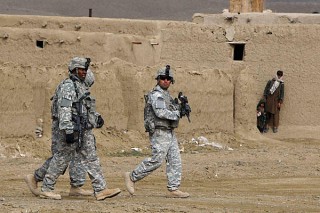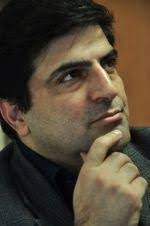by Ismail Salami

Obama’s recent comment on the tenth anniversary of the invasion of Afghanistan, claiming that “our citizens are safer and our nation is more secure” conjures up the image of the allegorical man chained in a cave facing a blank wall and with his back to the fire.
Praising the efforts of the military over the US longest war, Obama said, “After a difficult decade, we are responsibly ending today’s wars from a position of strength.”
“As the rest of our troops come home from Iraq this year, we have begun to draw down our forces in Afghanistan and transition security to the Afghan people, with whom we will forge an enduring partnership,” the US president added.
Despite what Obama said, security is declining radically in Afghanistan. Just on Friday coinciding with the tenth anniversary of the Afghan war, a suicide bomber and rocket fire hit US-run outposts near the Pakistani border. Seeing the growing militancy as a result of the US military presence in the country, Afghan President Hamid Karzai quickly admitted to massive security failures, saying the lack of security was the “greatest shortcoming” of the conflict. He believes that Pakistan is responsible for the insecurity in Afghanistan because the ISI provides the Haqqani network with ample freedom to carry out military operation from inside Pakistan.
Although he took some care not to accuse the Pakistani government of directly fomenting mischief in Afghanistan, he indirectly shifted the blame for the insecurity on Pakistan “We’re not saying this in a manner of accusation and reprimand. We are saying this in a manner of a statement intended towards a solution of the problem. Definitely, the Taliban will not be able to move a finger without Pakistani support. The fact is the Taliban were and are stationed, in terms of their political headquarters and operational headquarters, in Pakistan. We all know that. The Pakistanis know that. We know that.”
Without ruling out the high probability of Pakistan having a hand in part of the insecurity in Afghanistan, we should not forget that the US government has over and over again spewed out its understandably vitriolic fury on Pakistan in a bid to justify its failures in Afghanistan.
A recent indictment of the Afghan war came from the sacked US general Stanley McChrystal who said the US began the war with a “frighteningly simplistic” view of Afghanistan and that the US government lacks sufficient knowledge and expertise as to how to bring the war to a satisfactory end.
“We didn’t know enough and we still don’t know enough. Most of us, me included, had a very superficial understanding of the situation and history, and we had a frighteningly simplistic view of recent history, the last 50 years.”
General Stanley McChrystal who suddenly fell from grace with the US president Obama warned in 2009 that the war in Afghanistan “will likely result in failure” without the presence of additional troops.
In a 66-page report which he submitted to the then Defense Secretary Robert M. Gates, he warned that unless he is provided more troops, the war in Afghanistan is most likely lost:
“Failure to gain the initiative and reverse insurgent momentum in the near term (next 12 months) – while Afghan security capacity matures – risks an outcome where defeating the insurgency is no longer possible.”
An active CIA agent, the anonymous author of Imperial Hubris (2004) cast doubt on the credibility of and success of the wars in Afghanistan and Iraq and said the United States is losing the war on terror. In an interview with NPR books, the agent who spoke on condition of anonymity said, “We went into the war in Afghanistan kind of on a wing and a prayer and a hope that everything would turn out. By driving the Taliban and al Qaeda out of the cities, American forces actually helped the groups, which were rurally based anyway. So we let the overwhelming mass of fighters with guns go home to their villages and become invisible. And now we’re faced with a resurgence of [the two organizations], which were defeated in a battle but have hardly lost the war.”
What may strike as significant in the agent’s comments is his bare frankness as to the failure of the US military and the fact that the US government had conduced to stoking insecurity in the two countries.
In spite of all the up-front confessions of the top military officers, Obama does not seem to learn from past and instead of putting an end to all that insanity initiated by the former US president George Bush, he is apparently treading on the same path of evil and wrong doing; no wonder, they are both cut from the same cloth although the present president speaks in a more sophisticated manner.
It is manifest that all Obama sees in his vast panorama of the war on terror are an endless series of images represented in their most distorted shapes. With one eye looking at the full half of the glass, and the other one closing to the realities of the Afghanistan war, he talks with glory about a war which started in vain, a war which was never won and a war which never brought the Americans safety.
What were really the gains in Afghanistan but irreparable havoc for the Afghans and their country and the US back breaking financial debts and increasing economic woes imposed on the American people?

Dr. Ismail Salami (also known as Simon Lee) is a high-profile Iranian journalist and author. He has written numerous books and is the chief editor of the Press TV website.
ATTENTION READERS
We See The World From All Sides and Want YOU To Be Fully InformedIn fact, intentional disinformation is a disgraceful scourge in media today. So to assuage any possible errant incorrect information posted herein, we strongly encourage you to seek corroboration from other non-VT sources before forming an educated opinion.
About VT - Policies & Disclosures - Comment Policy



